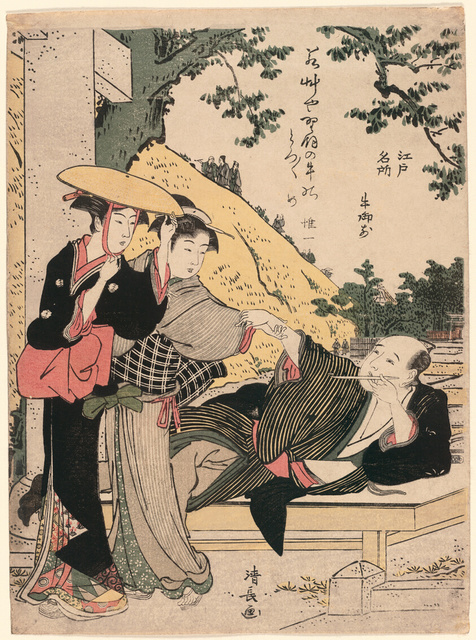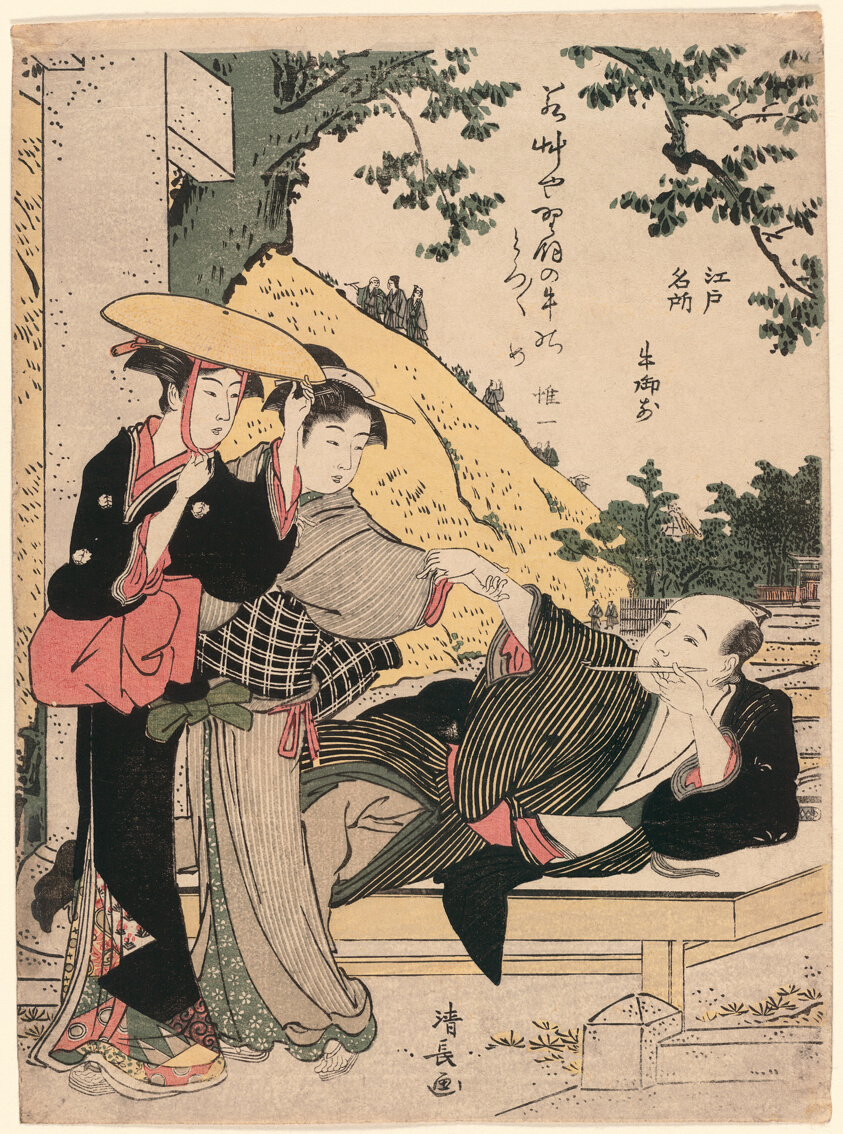Ushi-no-gozen, from the series "Famous Places of Edo (Edo meisho)"

Full description
This print showcases townspeople, most likely merchants. The print is of two women and a man. The two women have simple designs on the outer layer of their robes while, as seen through the bottom half of the print, the inner layers have lots of patterns and embroidery. Additionally, peeking through the collar and the sleeves is a red inner layer - most likely dyed safflower red. The pattern and embroidery on the inner layers are a subtle way for the merchants to show off their wealth without breaking the sumptuary laws. Some merchants had enough money to afford embroidery and dyed cloth that was usually exclusive to the upper class which led to the creation of sumptuary laws. This prohibited townspeople, especially the merchants, from wearing safflower red or having heavily embroidered clothing. A way to get past these laws was to have the inner robes with the dyes or embroidery peeking through since there were no laws concerning inner robes. Sonal Gupta Image courtesy of Art Institute of Chicago
Comments
to view and add comments.
Annotations
No one has annotated a text with this resource yet.
- typeImage
- created on
- file formatjpg
- file size604 kB


